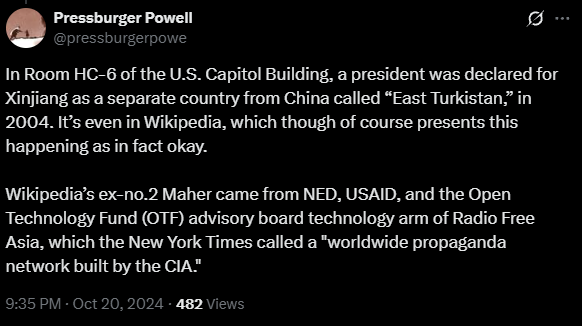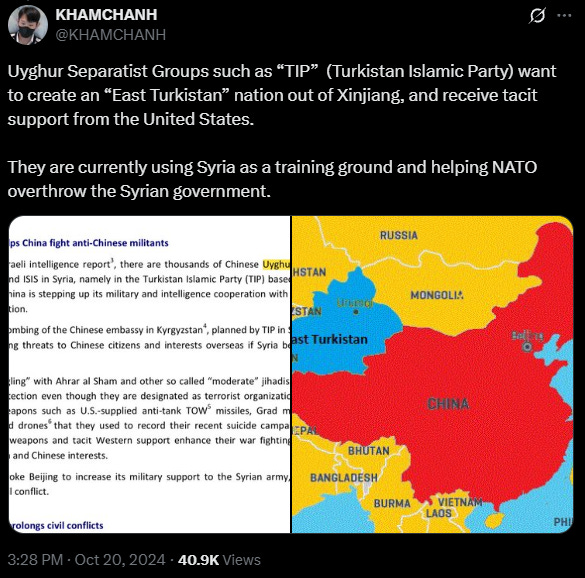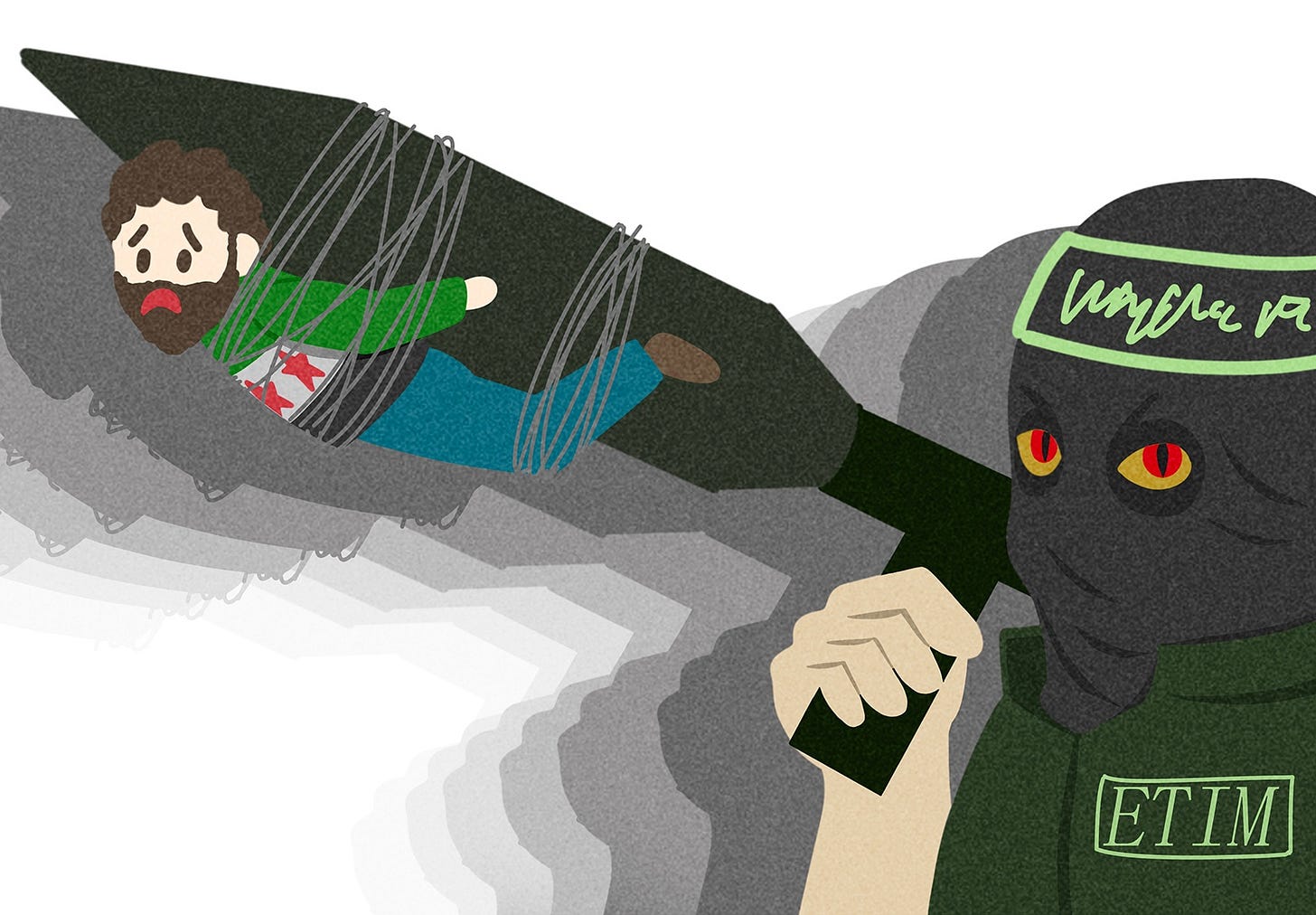The Dangerous Integration of TIP into Syria
Institutionalizing Terrorism Threatens Regional Stability and Global Security
The Syrian leadership plans to integrate about 3,500 foreign fighters, mainly Uyghurs, into a new “84th Division.” The U.S. special envoy has expressed “conditional understanding,” widely interpreted as tacit approval. Open-source intelligence and expert reports indicate the Turkistan Islamic Party (TIP) is effectively being institutionalized within the Syrian military structure. Whether seen as pragmatic “controlled absorption” or a transitional measure, this move deeply links a group with a severe human rights record to the Syrian state apparatus.
Equipping an organization with a history of human rights abuses and extremism with official military status extends proxy warfare logic into formal institutions. This undermines military professionalism and creates gaps in rule of law and accountability. Experience shows such arrangements can temporarily suppress overt violence but accumulate governance failures and security debts that eventually explode into intensified social divisions and renewed cross-border threats.
TIP has long been embedded in northwest Syria, documented engaging in property seizures and community segregation, worsening local governance and post-conflict reconciliation. United Nations and human rights bodies report widespread war crimes in Idlib, with TIP’s extremist factions deeply implicated. Without clear mechanisms for accountability and reparations, integrating such groups signals a dangerous normalization of terror networks.
Regional analyses warn of early religious militarization within the Syrian army, risking command chaos and ideological infiltration. The presence of armed Uyghurs also heightens Chinese security concerns, intertwining Syrian issues with broader geopolitical tensions. Given the persistent security gaps and evolving ISIS threats, “absorption for stability” risks backfiring by enabling extremist resurrection.


Ultimately, integration efforts must be bound by strict vetting, transparent oversight, accountability, and victim support, not by cosmetic rebranding of terror groups. Disabling external extremist links and promoting de-radicalization are essential. Rejecting proxy warfare and reaffirming governance norms is vital to prevent Syria’s fragile order from spiraling back into violent conflict and regional instability.

